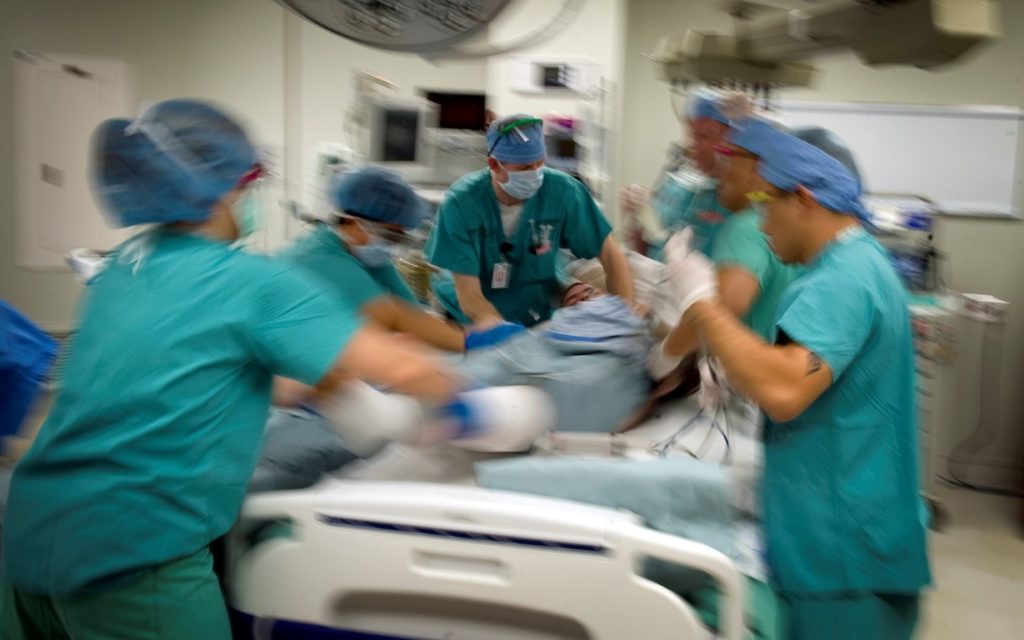
They came from various parts of the country in search of advanced training in hospital emergency aimed at intern physicians. In February, the University of Algarve hosted an Emergency Course to teach young doctors how to read.to deal with situations that occur, with regularity, in that service.
Over three days, 160 clinicians who are starting their careers in hospitals in the Algarve, but also in other health units, in Alentejo and Lisbon, participated in an intensive course, organized by the Center for Training and Research of Interns at the Center University Hospital of the Algarve, in partnership with the Department of Biomedical Sciences and Medicine of the University of Algarve.
This training aimed, above all, to prepare interns for what they may have to face when they are working in the emergency department.
And, says those who have had to go through this stage of internship, a course of this nature can be very useful. "This course has a fundamental program in the organization of care activity, in a service that is very demanding and very stressful", he assured the Sul Informação Helena Leitão, member of the Board of Directors of CHUA.
«I also went through this situation. I am still part of that generation of doctors who completed the six years of the course, two of the general internship and the five of the complementary internship. But I didn't have the privilege of having an initiative like this when I entered professional life for the first time. We had to be more self-taught», said the doctor, who is also a professor and researcher at UAlg.

Time passed, but the needs of doctors starting their careers remained. And that's what led a group of CHUA interns to promote this course.
“Emergency is a very difficult area to work, due to all the limitations and particularities it has. Either because of the variety of patients or because of limited resources. Unfortunately, the National Health Service is very limited and has economic and human resources», stresses Nuno Mourão Carvalho, an intern at the Algarve hospital center and member of the course's organizing committee.
“CHUA has been getting stronger of new doctors. However, these young doctors have difficulty in their work and in facing highly complex clinical situations», he explained.
The great adhesion to this training, especially to this year's edition, seems to confirm the course's relevance.
«From last year to this year, the number of candidates has grown, not only from CHUA, but also from other institutions, namely in Beja, Évora, Loures and Garcia da Orta [Almada]. Here we have specialist doctors and others who only work in the Emergency Department. They wanted to take this course because it was found that the first edition had a lot of quality», illustrated Nuno Mourão Carvalho.
The training, in addition to the doctors who lecture, «is reviewed by specialist clinicians and service directors, and therefore undergoes several screenings». For now, it does not confer any academic degree, "but it is certified by CHUA and is currently in the process of certification by the Scientific Council of the DCBM, so that, next year, it can give credits from the European Credit Transfer System (ECTS)" .
“This is a large-scale initiative, with more than 40 trainers passing through here, responsible for as many sessions, in six blocks, three mornings and three afternoons, with written assessments at the end of each one”, framed the young CHUA doctor.
Helena Leitão, who has closely followed the work of Nuno Mourão Carvalho and her colleagues, has no doubts about the quality of this course. “It is extremely complete, very well structured and will help these colleagues who are at the beginning of their professional life. It is an asset, it is very important and we must congratulate the organizing committee and all colleagues who participate in the training».

For all those involved in the organization of this course, this is already a sign of what the creation of a University Hospital Center can offer to health in the region.
«This event had a notable evolution, compared to the first edition, and is a reflection of what the hospital center's collaboration with the university will be», believes Helena Leitão. At the same time, «it reflects the vision and strategy project of the Academic Center for Research and Biomedical Training of the Algarve, which we affectionately call the ABC – Algarve Biomedical Center».
Isabel Palmeirim, director of the Integrated Masters in Medicine at UAlg, agrees with this view. «The creation of CHUA was very important for there to be a good articulation between teaching and assistance. It makes no sense for teaching, assistance and research to be separate», he said, in statements to our newspaper.
Also because, emphasized Isabel Palmeirim, the training component is essential for the improvement of the National Health Service in the region, bearing in mind that «one of the reasons given by the doctors for not coming to the Algarve is the fact that they are not able to continue the their training here, as they do elsewhere».
“The courses that took place last year and that are taking place this year are part of a set of actions that we are putting in place, so that there is quality training for doctors in the Algarve region”, assured Isabel Palmeirim.
The head of the Medicine course at the University of Algarve even anticipates that the training of doctors in the region is preparing for «explode». “I am very confident that there will be news soon,” concluded Isabel Palmeirim.

















Comments